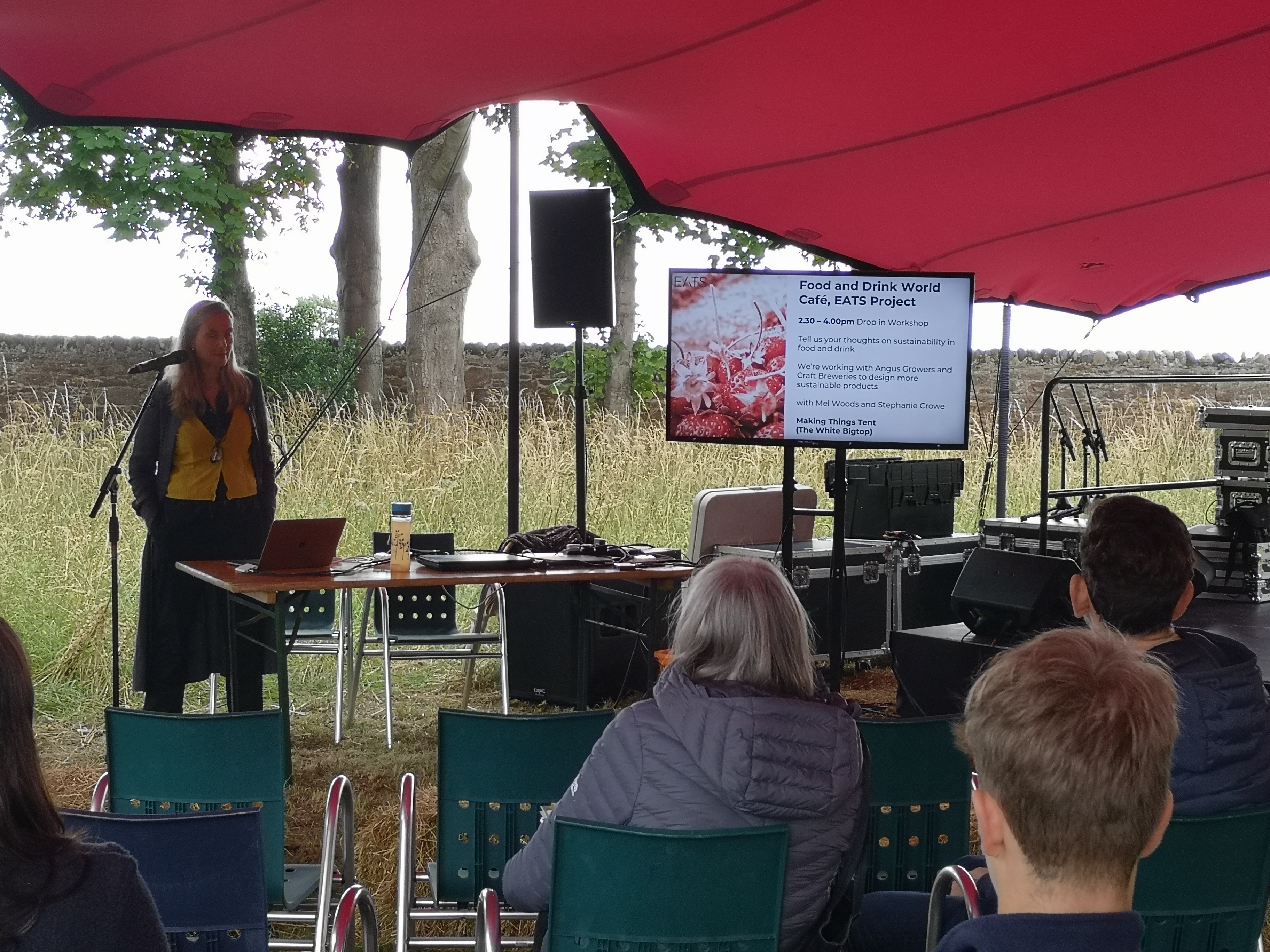YEAR ONE SUMMARY: What We Did & What We Plan to Do Next
The EATS project has been running for just over a year, the team from the Centre for Ecology Futures, University of Dundee, share their progress to date and plans for the future.
Project Brief
Enhancing Agri-Food Transparent Sustainability (EATS) aims to create a digital platform and ecosystem to enable better decision-making and action for sustainability. The overall project purpose is to deliver trusted and transparent sustainability across agri-food supply chains. Our initial design research has focused on mapping existing sustainability practices in sufficient detail to propose gaps in sustainability data across three sectors: soft fruits, brewing and pork (find out more about our initial workshops here).
What We Did
In year one, we examined agri-food supply chains, current practices, and consumer attitudes to food and perceptions of those supply chains.
Supply Chains & Current Practices
As a first step, we developed and organised co-design workshops with individuals from the soft fruits and brewing sectors. Using design thinking methods we examined their supply chains to identify current problems. In order to shape sustainable food futures, we mapped areas where carbon emissions are high, and where current practices could benefit from new solutions.
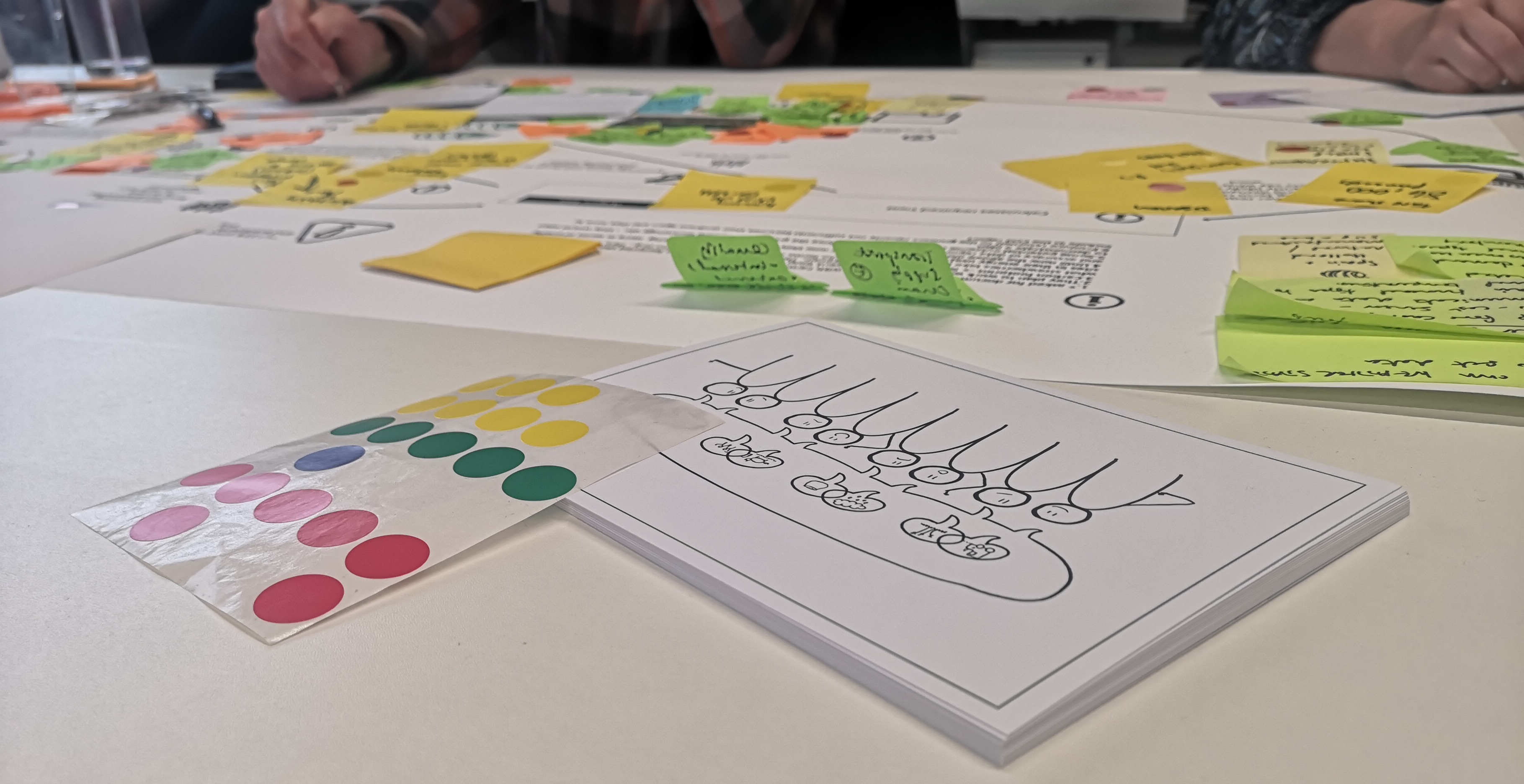
Through this approach, requirements were created for technology solutions being developed through partner work packages.. We completed the workshops by visiting soft fruit and brewing sites to gain a greater understanding of the issues participants shared. During this process, we were able to ask questions in context and investigate the potential for data gathering, as well as review existing sensing technology.
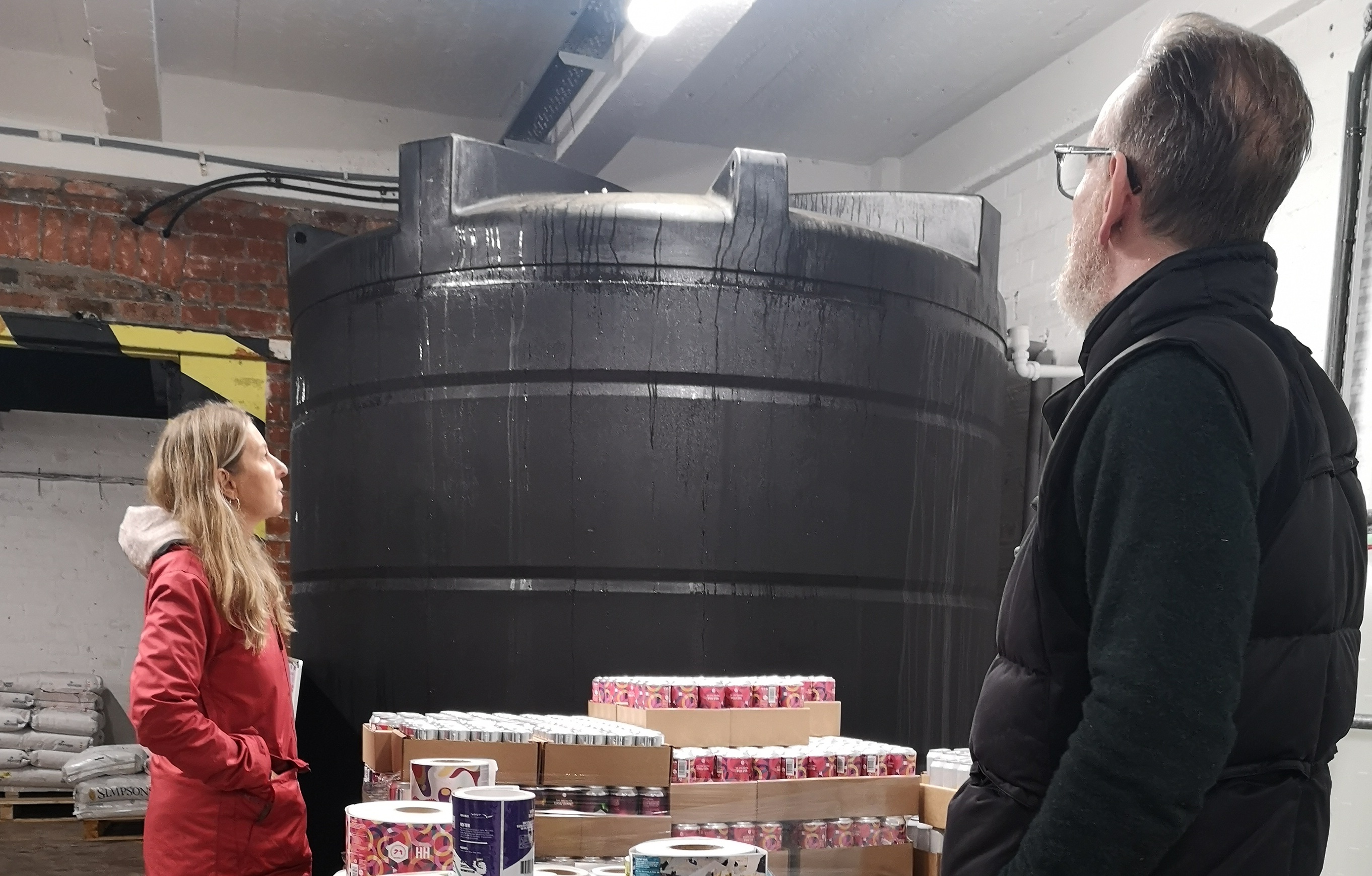
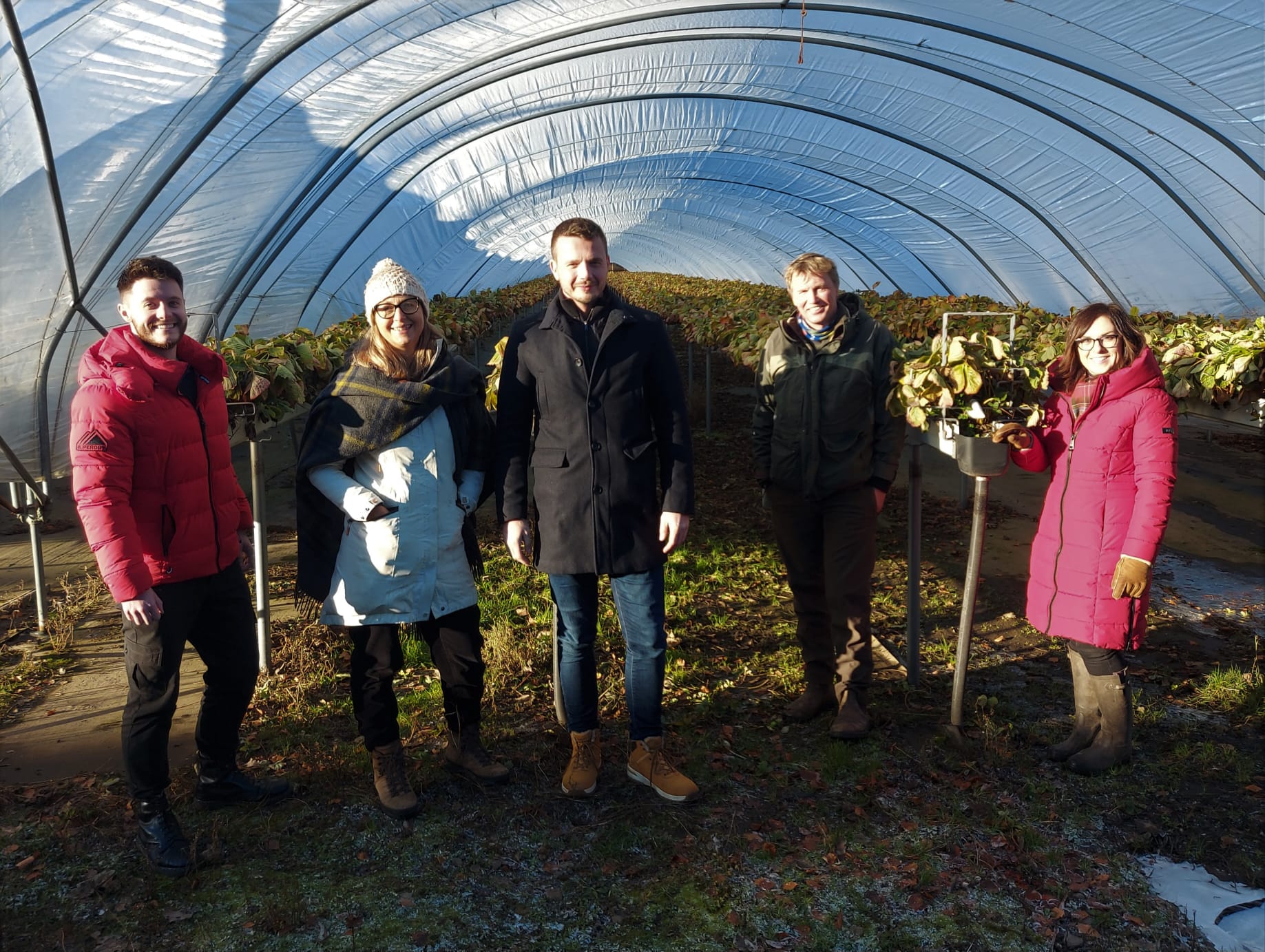
Following sensor deployment, in year two, we will conduct a ‘day-in-the-life exercise’ with key individuals in the decision-making process (e.g. agronomists and production managers) to gain insights from their role to integrate with our prototype digital platform going forward. This will help growers and brewers make informed decisions in changing their supply chain to reduce carbon emissions.
Consumer Attitudes & Perceptions
Our team engaged with consumers through the world cafe method at a local festival. Participants were asked the two questions about their food-purchasing decisions.
- What matters to you when choosing sustainable food and drink?
- How might we design better food and drink packaging?
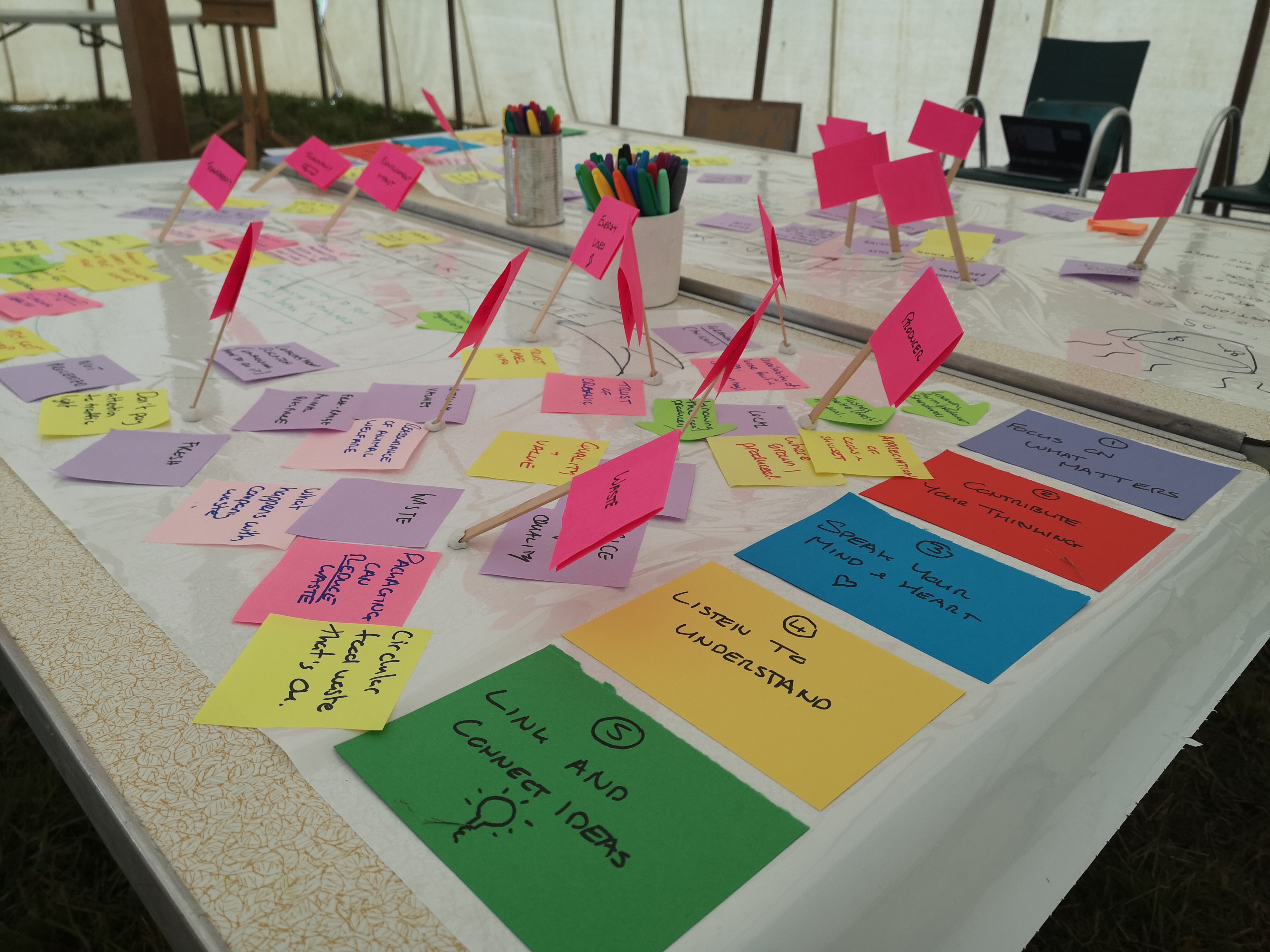
Next Steps
A second year of engagement with stakeholders, consumers, and policymakers will follow. Our research will include observations at selected sites to support the design of a sensing strategy and protocol for the sectors and the following activities:
Policy Lab
As part of our partnership with SRUC, we will support a Policy Lab in early 2023. This event aims to explore the policy landscape to discover shared interests in what a trusted infrastructure for transparent sustainability data would look like, and how it would be framed in relation to (and operate within) the wider environmental, social and economic framework.
Sector Workshops
Our second co-design workshop will engage sector stakeholders to explore current and future visions for trusted digital platforms through service prototyping.
Consumer Engagement
Our engagement with consumers will continue through co-design workshops with different types of consumer groups. We will further explore the attitudes and perceptions around agri-food and pro-environmental decision making.
